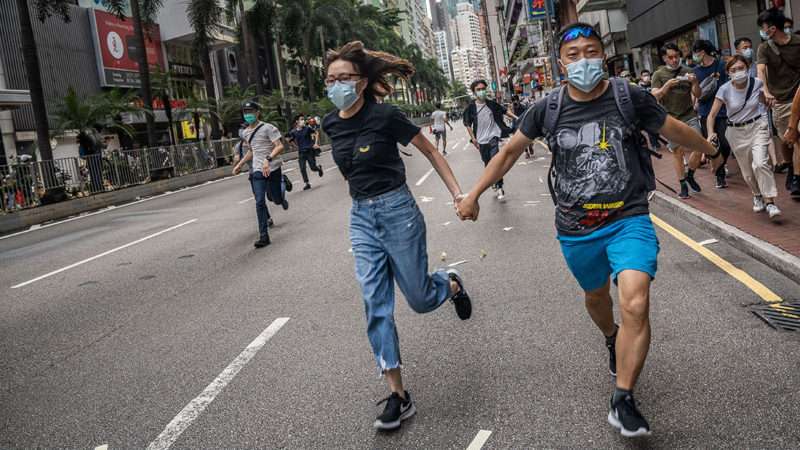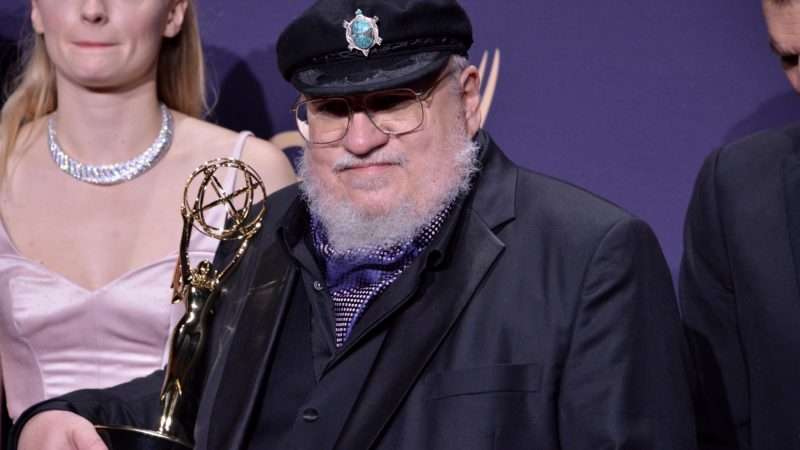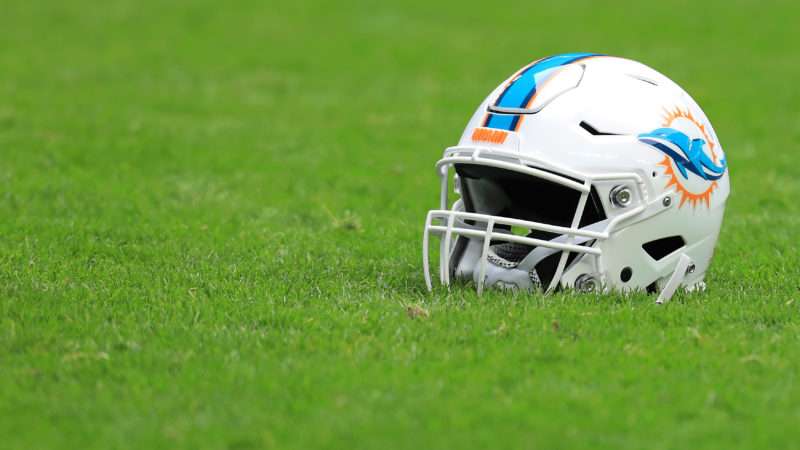
On the first Saturday of October 2019, people across the Hong Kong Special Administrative Region (SAR) woke to something they’re not accustomed to: nonfunctioning public transportation. As on many weekends since last June, there had been demonstrations the previous night against the Hong Kong government and the influence exerted on it by the People’s Republic of China (PRC). However, with the SAR government having just announced its intent to ban face masks—which protesters had been using to conceal their identities and prevent reprisals—the anti-government forces escalated.
The Mass Transit Railway (MTR)—the SAR’s renowned subway system—had been ransacked. Grocery stores and shopping centers had closed preemptively to prevent vandalism. Across the walls of the station near where I lived, one could find messages spray-painted by protesters. I took pictures, noting the sentiments: “History will absolve us”; “No turn back for HK”; “no freedom I would rather die”; and—most ominously—”If we burn You burn with us.”
Last year’s protests began as a response to the Hong Kong government’s proposed amendment to the territory’s extradition law, which would have allowed certain criminal suspects to be sent to mainland China for trial. This roused Hongkongers, accustomed to their highly regarded and politically independent judicial system, and fearing the prospect of rendition to the mainland’s much less regarded (and much less independent) system. This, they said, would be the death knell for “one country, two systems,” which allows Hong Kong to retain a number of rights, such as free speech, a free press, and a fair trial, that are largely absent on the mainland.
The protests started peacefully enough. On the weekends leading up to June 12, when a vote on the bill was scheduled, crowds sometimes exceeding 1 million participants turned out to march. But when the loyalist Hong Kong government dismissed these demonstrations and went ahead with plans to vote on the amendment, the protesters broadened both their objectives and their tactics. On June 12, a group of protesters, estimated at 40,000 strong, blocked entry into the Hong Kong Legislative Council. When they charged police barricades, the police responded with tear gas, pepper spray, and rubber bullets. Arrests were made, and dozens had to be treated at local hospitals.
The Hong Kong government got the message, suspending the bill and vowing not to resurrect it. But it was too late: The protesters wanted Chief Executive Carrie Lam out of office, along with universal suffrage, amnesty for arrested protesters, and the formal withdrawal of the bill. They also demanded a comprehensive inquiry into the conduct of the Hong Kong Police Force, which had been filmed on June 12 beating protesters and firing tear gas canisters at nonviolent demonstrators, reporters, and even first responders.
“Five demands, not one less!” became the protesters’ rallying cry—a signal that they would not be pacified by half-measures.
“Hongkongers have made it very clear that the five demands have to be met,” says Sophie Mak, a researcher for Amnesty International based in Hong Kong. They’re increasingly willing to resort to violence to ensure that life in the city does not go on normally if they don’t get their way. Is the escalation merely a symptom of pent-up anger, or is it part of a considered strategy to unmask China’s abuses before the world?
Opening Their Eyes
Well before 1997, the year the U.K. turned Hong Kong over to Beijing’s control, there were doubts as to whether the territory would continue to enjoy free markets, free speech, and freedom of the press under Chinese Communist Party (CCP) rule. Yet in the early years after the handover, Beijing kept interference in Hong Kong’s affairs to a minimum, seeming content to profit from its lax regulatory environment.
“It’s China’s gateway,” says Richard Harris, CEO of Hong Kong–based Port Shelter Investment Management and a longtime resident of the city. “It can be China when China needs it to be; it can be different from China when China needs it to be.” Hong Kong had been treated as a hub of trade by the British from the early 1840s, Harris says, and “it’s very difficult to erase 170 years of free market thinking.”
Underneath that success, however, a younger generation of Hongkongers began to grow restless. They looked at Article 45 of the Basic Law—the territory’s mini-constitution—and were eager to see Beijing make good on its promise that “the ultimate aim is the selection of the Chief Executive by universal suffrage upon nomination by a broadly representative nominating committee in accordance with democratic procedures.” Currently, the chief executive is chosen by an election committee stacked with Beijing supporters.
In 2014, angry over signals that the PRC government would never allow truly free elections in the territory, young protesters and pro-democracy politicians took part in what became known as the Umbrella Movement. Demonstrating outside government headquarters and blocking major city intersections (hence the movement’s other name: “Occupy Central”), protesters briefly captured the world’s attention. But the effort ended after just two and a half months with no real reforms to show for it.
Five years later, when the Beijing loyalists who govern Hong Kong hatched the idea for the extradition amendment, it seemed people had finally had enough. And not just young radicals; these protests enjoyed far broader public support than the Umbrella Movement had. As Mak puts it, “2019 was a year where most Hong Kong citizens opened their eyes to and became aware of CCP’s transparent and blatant encroachment of Hong Kong’s autonomy. The Hong Kong government’s incompetence and CCP’s increasingly oppressive and iron-fisted rule had forced people to come out on the streets to communicate their dissatisfaction.”
Joshua Wong, who rose to fame during the 2014 movement and remains a prominent critic of Beijing and its loyalists in Hong Kong, says 2019 proved that “Hong Kong people are dedicated and competent to fight for a brighter future and never kowtow to China under the oppressive regime.”
As the protests progressed, vandalism in the city’s commercial, financial, and political nerve center became commonplace, particularly against companies with “China” in their names. As police tactics—including injudicious use of tear gas, attacks on MTR riders suspected of being protesters, and, eventually, use of live ammunition—increasingly came under fire, clashes between police and protesters became more and more frequent. Certain incidents alarmed even those sympathetic to the pro-democracy movement. Last August, for instance, a group of protesters at Hong Kong International Airport bound and beat a reporter for China’s hawkishly pro-CCP Global Times newspaper. In October, video circulated of a crowd of protesters surrounding an investment bank employee who shouted “We are all Chinese!” in the dialect spoken on the mainland and received several punches to the face in reply. Perhaps worst of all, in November, after a middle-aged man accosted protesters, one responded by splashing him with a flammable liquid and lighting him on fire.
More commonly, though, protesters have preferred to attack symbols of Chinese authority, such as by burning the PRC flag and defacing the emblem. U.S. and U.K. flags became frequent sights at protests, with some demonstrators singing “The Star-Spangled Banner” or declaring that the territory should return to colonial rule.
By fall 2019, the protesters seemed to know the odds were against them: Beijing had no intention of acknowledging their demands. But if they couldn’t have democracy, they would at least try to force China into an overreaction that would harm its credibility with the rest of the world.
Hong Kong’s Antagonist
China’s government, once lauded for its turn away from Maoism and toward (state-driven) capitalism, has always had a ruthless streak: Before the 1984 agreement in which the U.K. promised eventually to hand control of Hong Kong to Beijing, the PRC communicated that it had not ruled out invasion to get back what it considered its rightful territory. Elsewhere, in Tibet, the Chinese government has suppressed uprisings, incarcerated and “re-educated” supporters of the Dalai Lama, and “Sinicized” the region through cultural policies and state-sponsored migration of Han Chinese people. And then of course there’s Beijing’s Tiananmen Square, where in 1989 another group of student protesters demanded democratic reforms, only to be ruthlessly crushed by the People’s Liberation Army (PLA).
All this, moreover, took place before Xi Jinping assumed control of the party in 2012. Xi is generally considered the most powerful Chinese leader since Mao Zedong, and analysts have sharply contrasted him with former leader Deng Xiaoping, author of the country’s turn to capitalism and rejection of Maoism’s one-man rule.
“Deng Xiaoping’s taoguang yanghui—’keeping a low profile’—guided Chinese foreign policy for decades but was gradually ditched during the Xi era,” says Zhiqun Zhu, chair of the department of international relations at Bucknell University. “No doubt Xi is a strong leader with a sense of historical mission.”
Xi has also taken a harder line on territorial claims. Chinese leaders before him sought to bring the “rogue province” of Taiwan closer to the fold by gradually integrating it into the mainland economy. But as Taiwan has sought to assert its distinct and democratic identity under an administration that favors independence, Xi has said Taiwan faces the “judgment of history” if it does not become more cooperative. PLA fighter jets regularly violate Taiwan’s territorial airspace, and the PRC frequently conducts military exercises near the island.
Chinese leaders before Xi sought to tamp down on separatist and Islamicist elements in the western province of Xinjiang. Under Xi, however, an extensive campaign of repression has taken place, with some sources saying that more than 1 million people have been interned. Documents leaked late last year showed that Xi specifically commanded “absolutely no mercy” be shown in the struggle against “terrorism, infiltration, and separatism.”
The case of Xinjiang has weighed on the minds of Hong Kong’s protesters, who have cited it as a demonstration of both Beijing’s ruthlessness and the difference that international attention can make. Unlike little-known Xinjiang, Hong Kong has been a global finance hub for decades and remains home to large numbers of expatriates from around the world. This, Hongkongers hope, is the ace up their sleeve.
The Upside of Violence
With little hope that Beijing will agree to their demands for democratization, Hong Kong’s protesters appeared to develop a secondary objective: to force China’s hand, including through violent provocations, to create bad press.
China has long hoped to reassure the world that its rise could be peaceful and that it could coexist with the liberal West. The reason the PRC has not unleashed its military to resolve the protests, as it did in Tiananmen, Zhu says, is that Beijing knows this “would spell the end of Hong Kong’s autonomy and severely tarnish China’s international image.” Bad publicity would be especially inopportune now, during a respite from a trade war with the United States that observers generally expect to flare up again, and with Taiwan led by an administration whose rejection of a “one country, two systems” formula of its own has been vindicated by the unrest in Hong Kong.
This explains the Hong Kong protesters’ decision to turn to vandalism and iconoclasm, to fight with police, to refuse compromise, and in some instances to assault people who seem to pose little threat to them (as with the investment bank employee mentioned above). Beijing and its loyalists in the Hong Kong government, of course, have had much to say about the approach, declaring the protesters “rioters” receiving support from outside forces hostile to China. In an interview last fall on Germany’s DW News, a pro-democracy student activist struggled to answer pointed questions about the movement’s refusal to condemn violence. The South China Morning Post opinion page, where I worked during the first six months of the protests, was inundated with letters and op-ed contributions during that time, some of them wondering whether a Martin Luther King Jr. or a Gandhi would emerge in the SAR.
In fact, the history of nonviolent protest is not so clear-cut. Gandhi may be famous today for his policy of satyagraha (nonviolent resistance), but he believed that at least one response was worse than the initiation of force: “My nonviolence does not admit of running away from danger and leaving dear ones unprotected,” he said in 1924. “I would far rather that you died bravely dealing a blow and receiving a blow than died in abject terror,” he said in 1939. “Fleeing from battle is cowardice and unworthy of a warrior.”
Furthermore, satyagraha‘s applicability elsewhere has been questioned. George Orwell, for one, suggested it would be of little use in a totalitarian system where authorities could use more insidious methods than assaulting their critics openly. Gandhi “believed in ‘arousing the world,’ which is only possible if the world gets a chance to hear what you are doing,” Orwell wrote. “It is difficult to see how Gandhi’s methods could be applied in a country where opponents of the regime disappear in the middle of the night and are never heard of again.”
“Inspirational figureheads can be easily targeted by authorities for punishment and even jail, which would have the effect of dispiriting their followers and discouraging their cause,” Mak says, citing the 2014 Umbrella Movement, which fizzled after protest leaders were arrested.
That raises an additional point: Nonviolent resistance has been attempted in Hong Kong; the 2014 Umbrella Movement largely consisted of civil disobedience tactics such as sit-ins, hunger strikes, and occupations of public facilities. While this made figures such as Wong well-known internationally, it failed to produce democratic reforms.
Last year’s demonstrations were also peaceful in their early days. They were largely ignored. The more violent recent protests have delivered only limited success, leading to the suspension and formal withdrawal of the extradition bill but failing to accomplish the protesters’ other goals. The Hong Kong Police Force has not faced any real accountability for its actions during the protests, Carrie Lam and her administration remain in office, and with the new national security law passed this summer, Beijing looks set to crack down even harder.
Still, nonviolence has batted .000 against this regime. And in the district council elections in November 2019, the pan-democratic bloc, which refused to condemn the protests, crushed Beijing-friendly parties that did condemn them—suggesting the protesters’ more aggressive methods have not lost their fellow Hongkongers’ hearts and minds.
What Next?
All of this has placed the PRC in a bind. In the aftermath of Tiananmen in 1989, the regime faced minimal international consequences. Now? The one thing that seemingly unites the Trump administration with both Democrats and #NeverTrump Republicans is the sense that China is a growing problem. Witness the near-unanimous passage last fall of the Hong Kong Human Rights and Democracy Act, which empowers the U.S. government to sanction individuals from the mainland or Hong Kong who commit human rights violations in the SAR, and which requires regular reassessment of the territory’s autonomy. Were China to meet today’s protests with the kind of force it used in 1989, the response would surely be tougher, and not limited to the United States.
While Hong Kong’s importance to Beijing has diminished—it amounted to one-fifth of the Chinese economy at the 1997 handover but is down to 3 percent today—financial experts say its regulatory freedoms, and the global trade they facilitate, still benefit the mainland.
“In order to raise funding in U.S. dollars, mainland firms—both state-run and privately owned—rely heavily on the territory’s financial markets, which are rooted in the city’s independent legal system that is based on English Common Law,” explains Nicholas Spiro, a partner at Lauressa Advisory in London. “There’s no equivalent [to Hong Kong] on the mainland, and it’s highly unlikely that there will be a credible substitute in the foreseeable future.”
That explains why Beijing, rather than sending in its troops, has chosen to crack down legislatively. The recently approved national security law grants Beijing the right to intervene in Hong Kong’s legal system for the purpose of punishing “terrorist” or “separatist” activities. This is a blatant violation of the agreement the PRC reached with the U.K. in 1984, in which China promised to leave Hong Kong’s way of life unchanged for 50 years following the 1997 handover.
“Clearly, Beijing is concerned about the direction of the democracy movement in Hong Kong,” says Bates Gill, professor of Asia-Pacific Security Studies at Macquarie University in Australia. “They are willing to risk some international fallout because, in their view, not cracking down in Hong Kong now would have more serious long-term implications than the short-term international response.”
Kurt Tong, who served as U.S. consul general to Hong Kong and Macau until June 2019, says there were three considerations behind China’s move: (1) protesters’ defiance of Beijing’s authority; (2) the inability of Hong Kong’s government to restrain them; and (3) the sense that U.S.-China relations have already so deteriorated in recent years that Washington’s disapproval would do limited damage. While China has long sought a balance between asserting control over Hong Kong and seeking to benefit from its free market, Tong believes “the calculus has now shifted to making Hong Kong fit into China better.”
Has the PRC overstepped, as protesters hoped? In response to the national security law, the Trump administration announced that Hong Kong can no longer be considered autonomous, and in mid-July, Trump signed an executive order ending the city’s preferential trade treatment, saying Hong Kong will “now be treated the same as mainland China.” Among other things, this means it may not be spared from tariffs should the U.S.-China trade war rage again. Sources I spoke to, however, said such a move was likely to harm Hong Kong much more than it would harm Beijing.
“Taking [Hong Kong’s trade status] away doesn’t hurt China at all, but it does damage certain interests the U.S. has there,” Tong says. “If the U.S. is aggressive…it will create distance between the U.S. and Hong Kong, and China wouldn’t mind that.”
Mak notes that the SAR’s “intermediary” status means mainland elites have “millions of dollars tied up in their Hong Kong accounts.” But revoking this status would amount to giving away the last of Washington’s leverage, she says, and may lead to “Beijing feeling justified to become even more aggressive and to escalate violence against Hong Kong and the U.S.”
The United States has “comparatively little leverage to force Beijing to change direction,” Gill agrees.
Having failed thus far to bring about democratization, the demonstrators had their eyes set on the Legislative Council elections—which carry considerably more weight than the district council elections of last fall—scheduled for September. But at the end of June, Wong told me the protesters were preparing for the possibility of widespread candidate disqualifications among the pro-democracy camp and/or for the cancellation of the elections. This proved prophetic: At the end of July, following a surge of COVID-19 cases in the territory, the Hong Kong government announced that the elections would be postponed by one year. That same week, a dozen pro-democracy candidates (Wong included) were barred from running. The Hong Kong chief executive claims that public health concerns alone drove the decision to delay the elections.
What might happen if the protesters, enraged by their lack of progress, went even further than they have so far? What if they began targeting public officials for assassination or bombing government facilities? Would they still retain foreign support?
“It’d be harder,” says Tong, especially if Americans died in such attacks. He notes that the U.S. consulate in Hong Kong has consistently defended the right to peaceful protest. Unconditional support for demonstrations, even if they turn violent, “feeds the false narrative that the protesters are responding to U.S. direction,” he says, “which is just not true.”
“Governments around the world are unlikely to voice overt support for such violent activities,” says Gill. “In any event, Beijing already believes that foreign governments and organizations are helping foment the protests, and [Chinese officials] prefer to foster such a narrative in order to deflect criticism away from their own mishandling of largely peaceful protests.”
In response to Beijing’s latest effort to assert control over the Hong Kong SAR, the U.K. has offered to accept Hongkongers, even including a path to citizenship. Australia and Taiwan have made preparations for an influx of refugees as well. Many hope the United States will follow their example.
Yet high-profile figures in the democracy movement, such as Wong and media mogul Jimmy Lai, have refused to leave, saying they will continue to fight for the city they love. In the few weeks since the national security law went into effect, that fight has gotten much harder. Pro-democracy politicians have quit politics, social media–savvy young people have gone offline, and libraries and media outlets are preemptively removing books and censoring words that might run afoul of the territory’s new enforcement apparatus. But the defenders of Hong Kong’s autonomy insist the fight is not over—and won’t be over as long as the rest of the world doesn’t lose interest in what’s happening in the SAR.
“We will continue to encourage the outside world…to keep Hong Kong in the global spotlight,” Wong says. He hopes foreign leaders will “let Beijing know that the Hong Kong people never walk alone.” If they don’t, it’s only a matter of time before China turns its sights to Taiwan, he says, and “the rest of the world” after that.
“Foreign governments should keep monitoring the situation in Hong Kong,” Mak says. “Mild diplomatic statements and a few ‘strong words’ are nowhere [near] enough. Turning a blind eye will risk plunging Hong Kong into a state of permanent destruction.”
from Latest – Reason.com https://ift.tt/2ZCH6oq
via IFTTT





